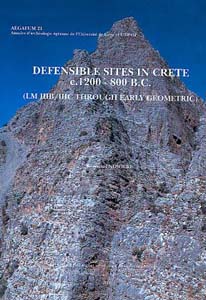 Source of book image: the web site cited below.
Source of book image: the web site cited below.
Years ago I saw a program on the History Channel that has stuck in my mind. (But, alas, I do not remember the title.) Near the end, I think, they discussed an ancient horde of invaders that created a dark age in the Mediterranean region. An on-sight scholar discussed a tiny cliff-side settlement that a family of natives had retreated to, to defend what little they had.
Attacking the tiny enclave would have been difficult. It was a long way up a treacherous and visible trail. But for the same reasons, living there would have been difficult too.
How human these unknown ancients were who defended their family and property; how poignantly noble.
When I watched the program, I jotted down a single word, the name of the site: Katalimata.
In doing a web search, I encountered the book (a monograph in the Aegean series), whose image appears above. I’m guessing that the book discusses the site I saw in the program, since the book description says that its author participated in digs at Katalimata.
The reference to the book is:
Nowicki, Krzysztof. "Defensible Sites in Crete C.1200 – 800 B.C." Aegaeum Vol. 21, 2000.
For more information on the book, see:
http://www.ulg.ac.be/archgrec/aegaeum21.html
